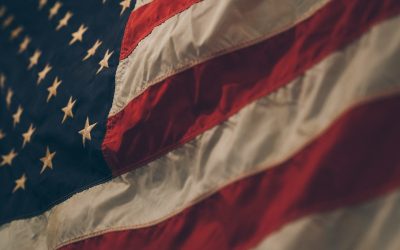At UCLA Law School last [month], a squad of student “thought police” tried to ban my book, Failing to Confront Islamic Totalitarianism: From George W. Bush to Barack Obama and Beyond. They don’t want you to know the book even exists, let alone what’s inside it. And the UCLA administration enabled them. This ominous episode underlines how students are learning to be contemptuous of intellectual freedom.
The story of what happened at UCLA is laced with ironies. On Feb. 1, the UCLA chapter of the Federalist Society and the Ayn Rand Institute co-sponsored a panel discussion at UCLA Law School on the vital importance of freedom of speech and the threats to it. My book shows how certain philosophic ideas undercut America’s response to the jihadist movement, including notably its attacks on freedom of speech.ADVERTISEMENT
Naturally, the book was displayed and offered for sale at a reception prior to the event, which featured Dave Rubin, the contrarian YouTube host; Flemming Rose, the Danish editor who published the now-infamous Mohammad cartoons in 2005 and author of The Tyranny of Silence; and Steve Simpson, editor of Defending Free Speech (these two books were also displayed).
During the reception, however, a group of UCLA students assembled in front of the book table and objected to mine. Why? Had they read the book, weighed the evidence, and found it lacking? Had they formed a considered evaluation of the book’s argument?
No: They felt the book was “offensive” and “insulting.” They had “issues” with the views that I and my co-author, Onkar Ghate, put forward. Our views, it seems, were “Islamophobic.” Based on what? Apparently, for some of them, it was the book’s title.
Yet another irony here is that in the book we disentangle the notion of “Islamophobia.” We show that it’s an illegitimate term, one that clouds thinking, because it mashes together at least two fundamentally different things. The term blends, on the one hand, serious analysis and critique of the ideas of Islamic totalitarianism, the cause animating the jihadists, which is vitally important (and the purpose of my book); and, on the other hand, racist and tribalist bigotry against people who espouse the religion of Islam. Obviously, racism and bigotry have no place in a civilized society.
Moreover, the book makes clear that while all jihadists are self-identified Muslims, it is blatantly false that all Muslims are jihadists. (It should go without saying, though sadly it must be said, that countless Muslims are law abiding, peaceful, productive Americans.) Ignorant of the book’s full scope and substance, the students felt it had no place on campus.
The students demanded that my book be removed from display. My colleagues who manned the display table declined to remove the book.
So the students enforced their own brand of thought control. They turned their backs to the table, forming a blockade around it, so no one could see or buy the books. Then they started aggressively leaning back on the table, pushing against the book displays. By blocking access to the book, they were essentially trying to ban it.
At this point, you might hope the UCLA administration would step in to re-assert the principle of intellectual freedom that is so crucial to education, a free society, and the advancement of human knowledge. Finally a rep from UCLA did step in–to abet the student protestors. My book was “inflammatory.” It had to go.
Thus: at a panel about freedom of speech and growing threats to it – not least from Islamists – UCLA students and school administrators tried to ban a book that highlights the importance of free speech, the persistent failure to confront Islamic totalitarianism, and that movement’s global assaults on free speech.
This shameful incident reflects a wider phenomenon on American campuses. At university, students should learn to think, to engage with different views, and thus to grow intellectually. But increasingly, students learn to put their feelings above facts. Some students demand to be protected from what they merely believe, without evidence, are uncongenial views. They demand that non-orthodox views be silenced. And such universities as UCLA willingly coddle and appease them.
The universities, observes Steve Simpson in Defending Free Speech, are a bellwether of the future of freedom of speech. If today’s students are increasingly hostile to intellectual freedom, can we really expect tomorrow’s voters, lawyers, judges, politicians to uphold free speech? To champion that principle, you have to value dialogue, knowledge, and, ultimately, the reasoning mind. Yet reason is precisely what those student agitators subordinated to their emotions.
First published in The Hill.




